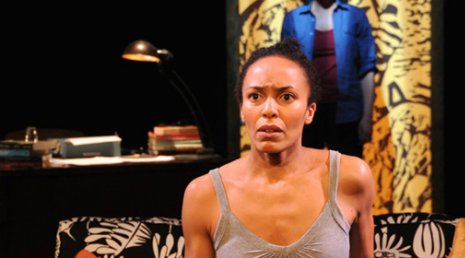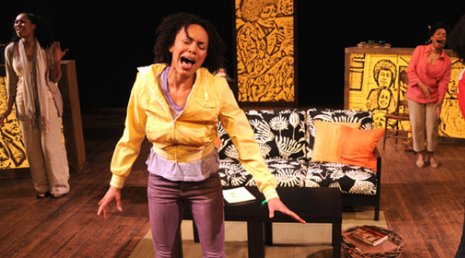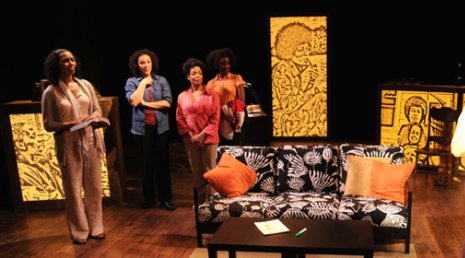About Eisa Davis
Pulitzer Prize-nominated playwright, singer, composer, and actor Eisa Davis sees theatre as a rare public space for active contemplation. And what does one find in Davis’ intimate, sacred theatre? Poetic, cutting work that wrestles with race, gender, identity, class, and sexuality. Work that experiments with fragments, fables, form and legacies from the ancestors. Stories biographical, historical, and global told with open-hearted daring, wit, and paradox: Isis and Osiris as airport ground crew, planetary extinction, the collaboration between the authors Langston Hughes and Zora Neale Hurston, an African folktale with the trickster Anansi retold with deaf and hearing hip hop artists, black womanhood, clairvoyance, memoir (her aunt, activist Angela Y. Davis), an abandoned child, a brave girl at the center of the historic Little Rock integration battle.
With language the star forward in her plays, and music central to her practice, Davis’ world is a rhythmic zone that celebrates voice and orality. Lyricism, elocution and slang, speech high and low, florid flights and everyday bluntness, all part of her juju. Carving out imaginative territories, Davis asks questions: what is family? What is blackness? Where is happiness? What kind of person speaks in poems to rivers, and why?
"Language is music, invented and inherited, and if I listen for it deeply enough, the work itself can become a kind of prophecy, telling truths I didn't know I knew."
Eisa Davis
"Eisa has taught me that playwriting is listening... she may be one of the most committed listeners, the most serious, attuned, empathetic listener I've ever witnessed."
Todd London, Artistic Director of
Photo of Eisa Davis on landing page courtesy of Kevin Yatarola.




